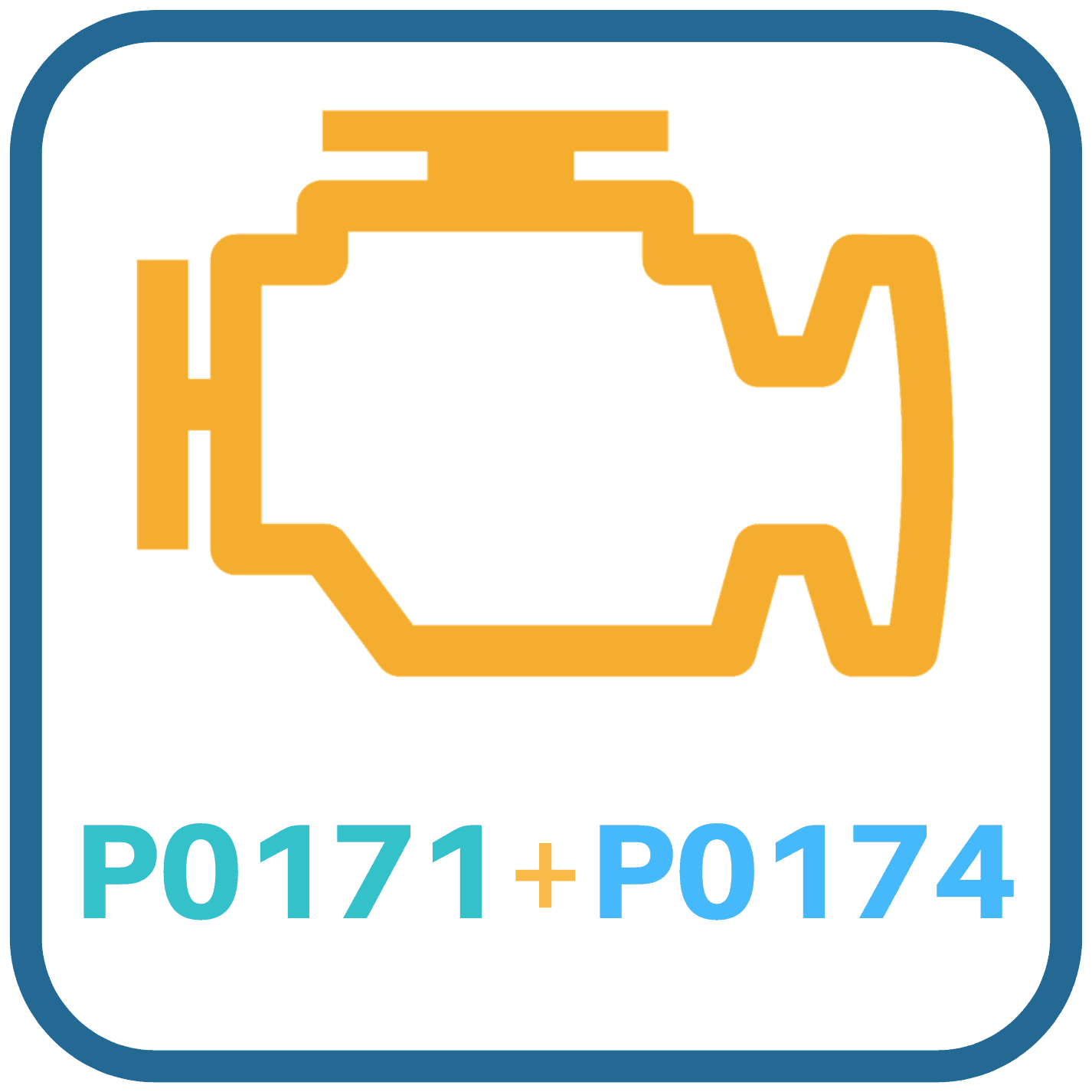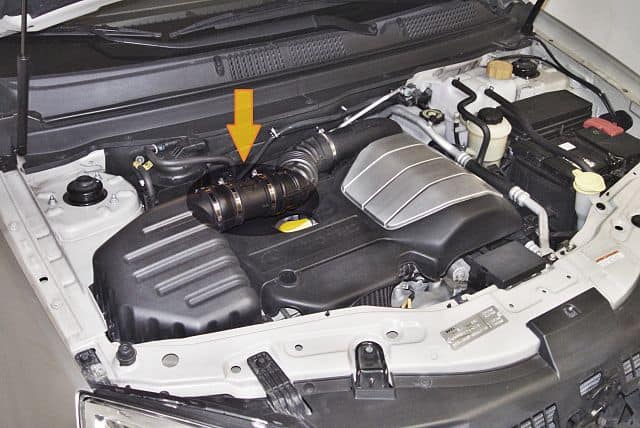P0171 and P0174 both indicate that there is a lean condition present in your Hyundai Tiburon. By themselves, these are some of the most common OBD2 codes. When they appear together, it indicates that the entire engine is running lean.
Definition
Both of these codes are generic, which means they have the same meaning (Tiburon or not).
- P0171– Fuel Trim System Lean → Bank 1: P0171 indicates that the side of the engine with the first cylinder (Bank 1) is running lean.
- P0174- Fuel Trim System Lean → Bank 2: P0174 indicates that the side of the engine with the first cylinder (Bank 2) is running lean. On inline engines, this code is not available, since there is only one “bank” of cylinders.
- Lean Condition Meaning: The engine is bringing in too much air to the amount of fuel present. There are a few reasons that a vehicle will get a lean condition. It could be getting too much air (think vacuum leak, EGR problem, or mass airflow sensor) or it is not getting enough fuel (bad injectors, weak fuel pump, dirty fuel filter, bad fuel pressure regulator). Here’s more
P0171 and P0174 occur when the air/fuel mixture on the vehicle gets too lean. They are both thrown when the oxygen sensors detect that there is not enough oxygen in the exhaust. The engine then makes adjustments to compensate and throws these codes, which trigger the service engine soon light.
When these codes both appear at the same time, it is more often than not the intake manifold gasket that is the cause of the problem. It can be other things as well, but the intake manifold gasket is a great place to start.
Symptoms: P0171 + P0174 Hyundai Tiburon
There aren’t always drivability issues associated with these codes. For most people the first sign that anything is wrong at all is the service engine soon light coming on.
Here are the typical symptoms that something is wrong when your Tiburon has codes P0174 and P0171.
- Fuel Mileage- may or may not suffer depending on how much the air fuel mixture has changed.
- Misfire– If the air fuel mixture has gotten too far from factory specs, this can cause the vehicle to misfire or run rough. This will often be accompanied by P0300. If you have this code along with P0171 and P0174, ignore the P0300. It should resolve when you get the air/fuel mixture issue fixed.
- Idle Issues– With the air/fuel mixture altered, the vehicle can idle erratically as the computer compensates to keep the engine running. The engine may sputter as well.
Causes
Here are the most common causes of P0171 + P0174. Vacuum leaks (particularly at the intake manifold) and the MAF sensor are the most common culprits.
Vacuum Leaks
With most vehicles, the most common cause for the P0174 or P0171 code to show is a vacuum leak. Take a look around and see if you can find the vacuum leak. Here’s a great YouTube video on how to go about finding one. If the engine is letting in unmetered air, the intake manifold leaking is a very high likelihood. But, the leak can be anywhere.
A good scan tool can help you determine if there is a vacuum leak as well. Fuel trim at idle will be greatly affected by a vacuum leak. But, as you rev the engine, the fuel trim should dip down to around 0 (give or take a few points).
Mass Air Flow Sensor
The mass air flow sensor calculates the volume of air entering the engine. If it has gone bad, the air fuel mixture will be off and the P0174 and/or P0171 codes will show. It’ll be located between the air filter and the throttle body. It’s easy to find. It will have a wiring harness plugged into it.
The number one culprit when it comes to the MAF sensor going bad is dirty air. This typically happens when the air filter has a bad seal. It’ll let unfiltered air in and it can quickly get the MAF sensor dirty enough that it will no longer work properly. Another way they can stop working properly is if they get dirty from fuel vapor.
Either way, the mover here is to clean it with a MAF sensor cleaner. Don’t use anything else. It’s very sensitive. If it’s still not working, you may need to get a new one. Hyundai Tiburon: Bad MAF Sensor
EGR
The EGR system is designed to recycle exhaust gasses for cleaner emissions. If it has gone bad, you may get these codes as it throws off your Tiburon’s vacuum level.
Bad Fuel Injectors
If you have one or more fuel injectors that have gone bad that can certainly cause the air/fuel mixture to go bad. But, P0174 and P0171 indicate that BOTH sides of the engine are running lean. One bad fuel injector would cause one of those codes to show up. Multiple fuel injectors going bad on both sides of the engine could cause both codes to show, but it’s unlikely.
If you have more than one cylinder related misfire codes (such as P030X, where X is the misfiring cylinder) then it may be possible that you have more than one bad injector. Bad Fuel Injector Diagnosis
Fuel Pump/Fuel Filter
Today’s modern fuel injected motors need a lot of fuel pressure to atomize the gas properly. If the fuel pressure is not as high as it needs to be this atomization doesn’t happen properly and the optimal air/fuel mixture isn’t achieved. This is common when the fuel pump is bad, or the fuel filter is clogged. The fuel pressure regulator can also be the culprit. There’s more than likely a port you can use to check the fuel pressure. Do that before anything else.
Here’s a great YouTube video on the subject. This guy really gets into the problem, and can really help you find the cause of the code.
Conclusion
Good luck figuring out what is causing the P0171 and P0174 trouble codes with your Hyundai Tiburon. If you feel like you could improve this article in any way, please feel free to leave a comment below.



